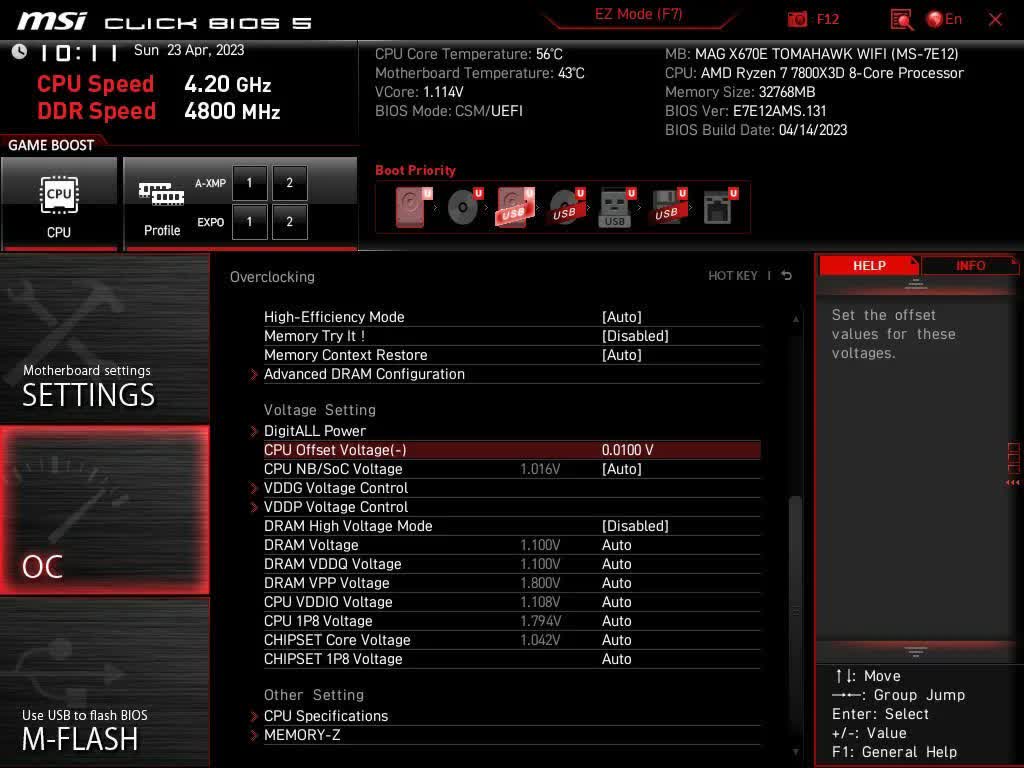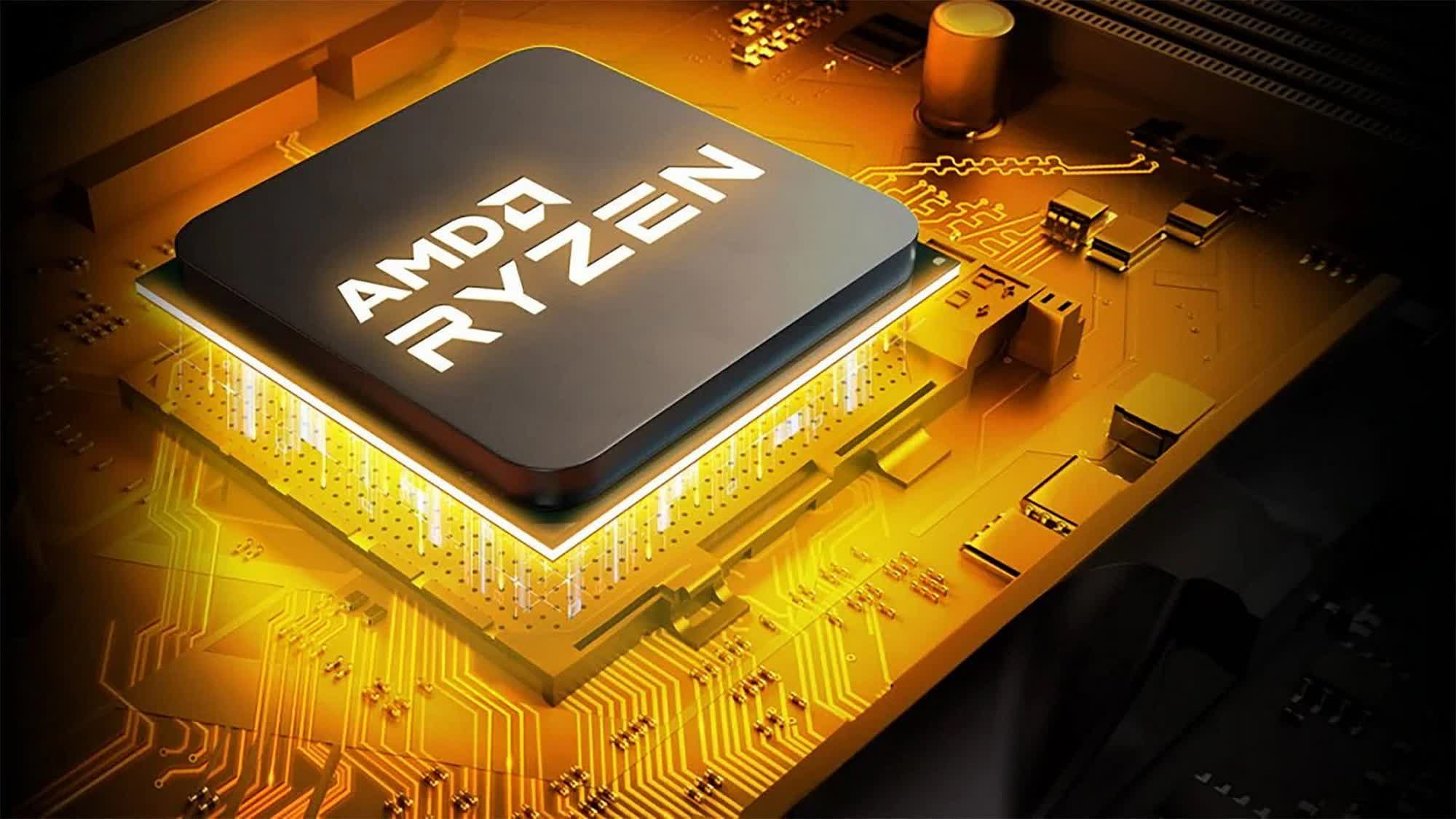PSA: A group of users have recently reported Ryzen 7000X3D processors are overheating and damaging motherboards. The problem appears BIOS related, as MSI and Asus have released patches. While AMD hasn't found a solution yet, it confirmed it's investigating the issue alongside motherboard vendors.
AMD has released statements to the press regarding Ryzen 7000X3D CPUs that have been burning out. Meanwhile, MSI and Asus have updated their BIOS firmware for AM5 socket motherboards to address voltage issues, which may be behind the problem.
The latest generation of AMD's 3D V-Cache processors has garnered high praise, but owners using one on an MSI motherboard or especially an Asus X670 should update to the latest BIOS ASAP. Users of models from other companies like Gigabyte or Asrock should also check for BIOS updates to be safe.
MSI's update introduces new restrictions on voltage controls for overclocking the affected processors. Now, users can only reduce voltage, and can no longer directly adjust voltage or frequency.
Update (April 27): AMD released a second statement this morning indicating they have released a BIOS update to motherboard manufacturers to prevent the overheating issue:
"We have root caused the issue and have already distributed a new AGESA that puts measures in place on certain power rails on AM5 motherboards to prevent the CPU from operating beyond its specification limits, including a cap on SOC voltage at 1.3V. None of these changes affect the ability of our Ryzen 7000 Series processors to overclock memory using EXPO or XMP kits or boost performance using PBO technology.
We expect all of our ODM partners to release new BIOS for their AM5 boards over the next few days. We recommend all users to check their motherboard manufacturers website and update their BIOS to ensure their system has the most up to date software for their processor. Anyone whose CPU may have been impacted by this issue should contact AMD customer support. Our customer service team is aware of the situation and prioritizing these cases."

The company warns against manually adjusting the voltage and frequency, as 7000X3D CPUs don't officially support the feature. Instead, MSI advises using Precision Boost Overdrive overclocking, optimized through the BIOS's Enhanced Mode Boost. The company provides a list of affected motherboards, which includes X670 and B650 models.
Similarly, Asus released a beta BIOS this week that addresses the problem by limiting SoC voltage to 1.30V or less. Asus owners should immediately check their motherboard model on the company's website for BIOS and firmware updates.
The problem was made public when Reddit users reported that Zen 4 CPUs like the Ryzen 7 7800X3D were suffering from bulging pads and leaving burn marks on CPU sockets. The use of EXPO profiles – not currently approved for 7000X3Ds, could be the culprit, and some say to avoid them for now.
Eventually, AMD responded to questions from outlets like Anandtech and Ars Technica, stating that they're investigating the problem in cooperation with hardware partners. The CPU maker described the reports as limited and advised affected users to contact customer support.
Meanwhile, a new MSI BIOS for the same affected motherboards introduces a new feature that can cut initial boot times in half with a new feature called Memory Context Restore. Mention of the functionality emerged in reports over the last few months without much attention until MSI brought it into the limelight. It doesn't seem extensively tested, and its usefulness depends on how often users cold boot their PCs.
